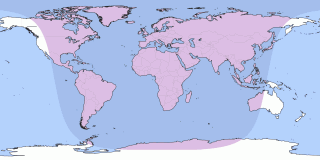Feb 20, 2027 at 6:03 pm
Near max in Ozone
| Global Event: | Penumbral Lunar Eclipse |
|---|---|
| Local Type: | Penumbral Lunar Eclipse in Ozone, Arkansas |
| Begins: | Sat, Feb 20, 2027 at 6:00 pm |
| Maximum: | Sat, Feb 20, 2027 at 6:02 pm -0.247 Magnitude |
| Ends: | Sat, Feb 20, 2027 at 7:13 pm |
| Duration: | 1 hour, 13 minutes | All times shown on this page are local time. |
Eclipses and Transits Visible in Ozone
| Eclipse Visibility From Ozone | Visibility Worldwide | ||
|---|---|---|---|
| Mar 13–14, 2025 Total Lunar Eclipse | Total Lunar Eclipse |  | |
| Mar 3, 2026 Total Lunar Eclipse | Total Lunar Eclipse |  | |
| Aug 27–28, 2026 Partial Lunar Eclipse | Partial Lunar Eclipse |  | |
| Feb 20, 2027 Penumbral Lunar Eclipse | Penumbral Lunar Eclipse |  | |
| Aug 17, 2027 Penumbral Lunar Eclipse | Penumbral Lunar Eclipse |  | Note: Click on the date link for details in Ozone, or the path map image for global details. Currently shown eclipse is highlighted. |
Next total solar eclipse visible in Ozone
